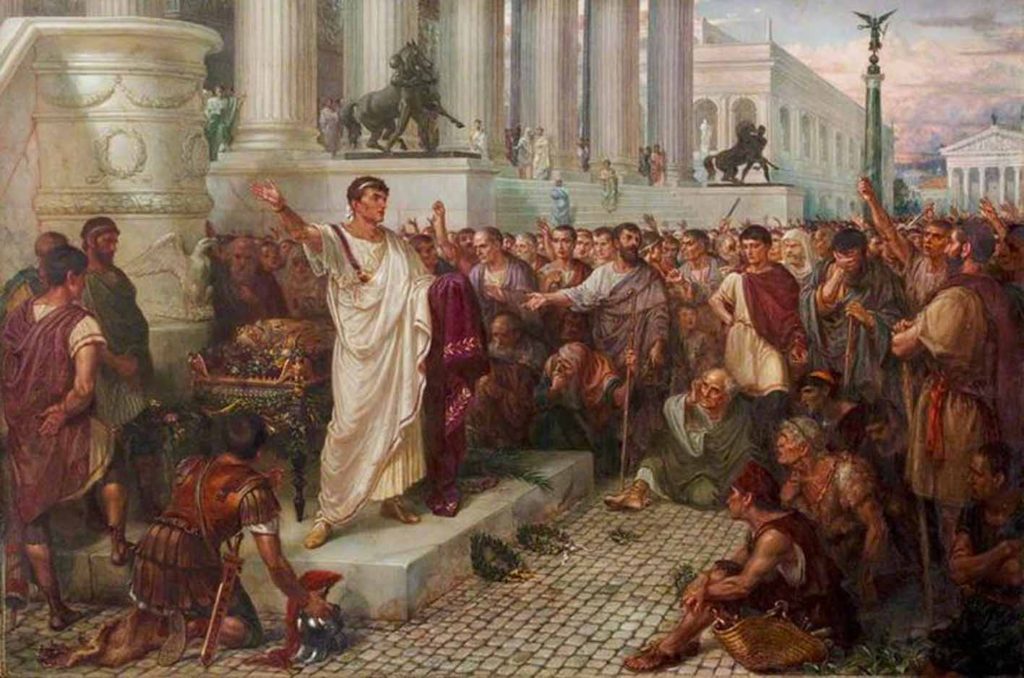We now come to the vexing topic of how we go about mastering our emotions.
This whole series of presentations will have been compiled in vain if no one has become impressed with the necessity, first, of controlling the emotional body, second, of gradually training it into a vehicle of consciousness, completely subservient to the will of the real person, the monad; and third, in due time, of steadily developing and perfecting its various powers—the powers we will get to in the next presentation.
The average person knows little and cares less about such matters. Still, to the esoterics student, it is essential to fully master all of one’s physical, emotional and mental vehicles. However, for purposes of analysis and study, it is necessary to separate these three bodies and study them individually. In practical life, the training of all of them can be carried on simultaneously, with any power gained in one helping to some extent in the training of the other two.
We have already discussed the desirability of purifying the physical body through food, drink, hygiene, etc., to make it slightly less difficult to control the emotional body. The same principle applies with even greater force to the mental body, for it is in the last analysis that the emotional body’s desires, emotions, and passions can be mastered only by the use of mind and will.
It is easy to think of purifying oneself by thinking kind thoughts, and your aura somehow glows stronger. Thoughts and emotions are physical things on their own planes of matter, but what you do with your body and feed into it dramatically affects your overall objective towards upping your game. Another logical question to ask is: why does eating meat affect spiritual development? Animals absorb and radiate energy at a lower frequency than humans. Ingesting these vibrations lowers the balance in your physical being, which cascades into higher envelopes. These lower frequencies also repel the ingress of prana and the other two vital forces. What are those other two forces? Fohat and Kundalini. Last, there are karmic consequences for consuming our animal brethren. The bill has not fallen due to the balance of karma between our two kingdoms, but our credit is running out.
For many temperaments, a careful study of the psychology of emotion is helpful, as it is much easier to bring under control a force where one understands the genesis and nature of the emotion in question. The principles in the treatise “The Science of the Emotions” by Bhagavan Das is worth studying. It postulates that all manifested existence can be analysed as being about the Self, the Not-Self, or the relationship between them. That relationship may be divided into:
Cognition
Desire
Action.
To know, desire, and endeavour to act comprise the whole conscious life experienced by a monad. Feeling or emotion is of two kinds — pleasurable or painful. Pleasure, fundamentally a sense of wanting more, produces attraction and love; pain, fundamentally a sense of wanting less, produces repulsion and hate. From attraction proceed all love emotions; from repulsion proceed all hate emotions. All emotions arise from love or hate, or both, in varying degrees of intensity. The precise nature of a particular emotion is also determined by the relationship between the one who experiences the emotion and the object, which is the occasion of the emotion. The one who experiences the emotion may be, about the particular emotion concerned, either:
Greater than:
Equal to: or
Less than the object.
Pursuing this analysis, we arrive at the six possible types of emotional elements given in column three of the table. Column four gives sub-divisions of the primary elements in varying degrees of intensity, the strongest at the head and the weakest at the foot of each group. All human emotions consist of one of these six elements or, more frequently, of two or more combined. If you want to dig into the weeds, read the treaties mentioned.
Another valuable line of study for an aspirant aiming at self-knowledge to attain self-mastery is that of collective or crowd-consciousness. This is outlined in “The Crowd in Peace and War” by Sir Martin Conway. His thesis suggests that:
(1) The great majority of Humanity is brought up in, and all their lives belong to, certain psychological “crowds”, i.e., groups of people who think and feel similarly. Such crowds are those of the home, friends and associates, schools and universities, professions, religious sects, political parties, schools of thought, nations, races, etc. Even those who read the same newspapers or belong to the same club form a psychological “crowd”. Some people refer to these groups as “tribes”.
(2) Such crowds are mainly formed, nourished, and dominated by feeling or emotion — not thought. A crowd has all the emotions but no intellect: it can feel but not think. The opinions of crowds are seldom or never reached by reason but are merely infectious passions which sweep through the whole body like an electric current, frequently originating from a single brain. Once caught up in the crowd, the individual rapidly loses the power of individual thought and feeling and becomes one with the crowd, sharing their life, opinions, attitudes, prejudices and the like. You now know why certain ideas can spread like wildfire, positive or negative.
(3) Very few ever have the courage or the strength to break away from the various crowds to which they belong; the vast majority remain all their lives under the sway of the crowds which have absorbed them.
It is possible to enumerate and describe the various crowd virtues and to show that they differ from the virtues of the individual, being, on the whole, at a much lower and more primitive level. Every crowd, unable to lead itself, needs and finds a leader. There are three main types of such leaders.
(a) The Crowd-Compeller. They dominate and lead the crowd by imposing their own ideas through the sheer force of their own personality. Examples of this type are Napoleon, Caesar, Charlemagne and, in modern times, Hitler.
(b) The Crowd-Exponent. This type, totally distinct from the Crowd-Compeller, is someone who feels by natural sensitivity what the crowd feels or is going to feel and which expresses in clear and usually graphic language the crowd’s emotions, which is inarticulate. Such people seldom think out problems for themselves and then proclaim their gospel. Instead, they wait for the crowd’s emotions to form; then, they plunge into the thick of the fray and say with eloquence, power and enthusiasm that which people about them are dimly and vaguely feeling. Examples of this type are widespread, especially in politics. Take your pick of modern examples of this type; there is a long list.
(c) The Crowd-Representative. Crowd leaders of this type are picturesque figureheads rather than individual forces. Typical examples are a constitutional monarch, a consul, an ambassador and a judge. These characters are merely the people’s “public opinion”, personified: they speak with the people’s voice, act for them, and stand for them in the sight of the world. They must suppress or conceal their own individual opinions and appear to feel as the public feels, to act in conformity with the public wishes and sentiments.
The three categories enumerated are the merest sketch of the leading principles, explained much more ably in the book. This topic is worth further study, as it helps you appreciate the forces by which “public” opinion is swayed. It also draws in sharp relief the value of many of your beliefs, opinions and attitudes towards many questions of the day. We should study and “know” ourselves. It is no easy matter to stand against a solid widespread bias, owing to the ceaseless beating upon us of the thought forms and currents that fill the atmosphere. We should learn to recognise the various types of crowd-leaders and refuse to allow ourselves to be dominated, persuaded or cajoled into accepting ideas or following lines of action. The emotional body must become an obedient servant to the will of the sovereign monad.
It must always be remembered that desire can be changed and finally mastered through thought. As the mind learns to assert control, desire becomes transmuted into will. Governance is then not by external objects that attract or repel but by the spirit of the monad, the inner ruler.
We elevate emotional weaknesses and vices. These become a habit through repeated indulgence and are stored up, not in the monad as an inherent quality, but in the emotional permanent atom. A person seeking to kill out desire, balance karma, and obtain liberation should achieve this objective. However, we cannot escape from the law of evolution; sooner or later, we will be swept forward again into the stream by its resistless pressure and forced into re-birth. Killing out desire is not the Path of the true aspirant. Personal loves are not to be killed out but to be expanded until they become universal: loves are to be levelled up, not down. The failure to realise this and the tremendous difficulty of the task, when realised, has led, in some cases, to the stifling of love instead of its growth. But overflowing love, not lovelessness, will save the world. The liberated soul is the Ocean of Compassion, not an iceberg. To try to kill out love is the way of the left-hand Path. Remember, the Orange people on the Moon Chain.
It is, however, necessary to kill out ultimately the lower and coarser desires; the remainder must be purified and transmuted into aspirations and resolution. It is a waste of force to desire or wish: the aspirant wills instead. Will is a higher aspect of desire.
It has also been said that we should slay the “lunar form”, i.e., the emotional body. This does not mean that all feelings and emotions should be destroyed, but rather that the emotional body should be entirely under control and that we should be able to slay the lunar form at will. As people develop, they make their will one with the will of the Logos.
The Voice of the Silence warns us that beneath each flower in the Emotional world, however beautiful it may be, lies coiled the serpent of desire. In the case of affection, for example, everything of a grasping nature must be altogether transcended. Still, high, pure and unselfish affection can never be transcended since it is a characteristic of the Logos Itself and is a necessary qualification for progress upon the Path which leads to the Masters and to Initiation.



Hello Kazim! Could you please share table with emotions.
I was trying to find last redaction of Bhagavan Das book, but get only this one – 1900
I have sent the table “Genesis of Emotions” to you on WhatsApp